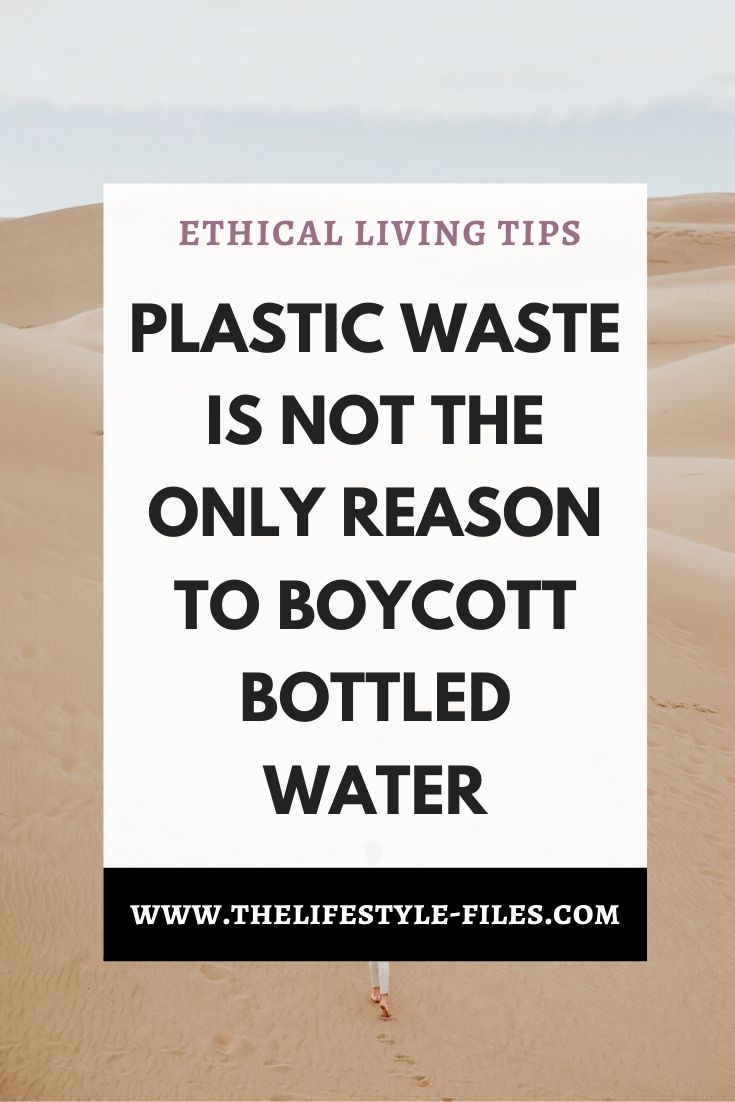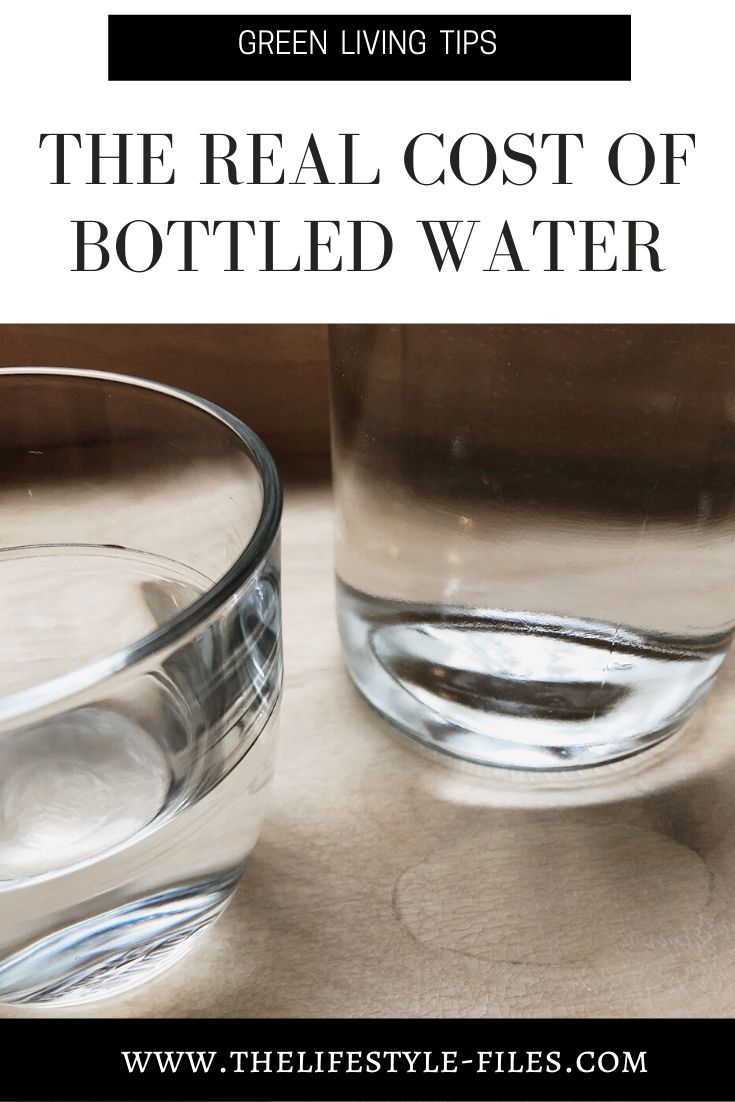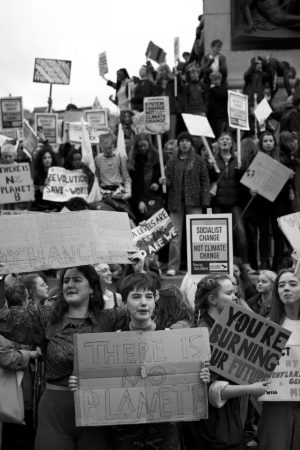 If there is one environmental issue that has successfully managed to seep into public consciousness as well as mainstream media and political discussions in recent years, it’s definitely plastic pollution. And seemingly, there has been important changes in this area: a lot of countries have passed bans on single-use plastic, zero waste advocates have given thousands of useful tips on how to phase plastic out of our life and switch to more sustainable, reusable options, and some companies are trying to work with recycled plastic in order to at least prolong their life.
If there is one environmental issue that has successfully managed to seep into public consciousness as well as mainstream media and political discussions in recent years, it’s definitely plastic pollution. And seemingly, there has been important changes in this area: a lot of countries have passed bans on single-use plastic, zero waste advocates have given thousands of useful tips on how to phase plastic out of our life and switch to more sustainable, reusable options, and some companies are trying to work with recycled plastic in order to at least prolong their life.
Plastic pollution is indeed a grave issue. Unfortunately, the plastic islands floating in the ocean or the mountain-sized plastic bottle dumps in nature have become familiar sights to all of us and we know that micro plastic and plastic waste are killing millions of marine (and land-based) animals every single year. But the detrimental effects of plastic pollution are not limited to marine life. It can lead to soil contamination, groundwater pollution, and potentially human health problems. Not to mention the manufacturing of plastics has a huge carbon footprint as well. And, the final blow is that plastic takes hundreds if not thousands of years to decompose – if they decompose at all.
So I whole-heartedly embrace all measures meant to take on the plastic pollution problem, even if there is some truth to the concerns of some environmental experts and activists who think that the focus on banning single-use plastics sometimes eclipses other grave environmental issues. I, too, think that the current corporate and political zeal to deal with this is not always totally genuine. In other words, phasing out plastic packaging or banning straws in restaurants is a relatively easy environmental (and thus PR) win for companies and politicians and thus they can delay making more radical (and less convenient) changes, like transforming production processes, passing stricter laws or tax policies, or addressing overconsumption as a key driver of climate change.
Still, it’s imperative that we work towards eliminating plastic pollution, especially as it’s frequently interconnected with other environmental and social justice issues.
Let’s take the bottled water industry as an example. Plastic bottles are, rightly, blamed for a large chunk of the plastic waste currently floating around our rivers and oceans. However, this is not the only environmental problem they cause – there are other serious ethical, social, and environmental issues as well that demand a global answer.
So, where exactly does bottled water come from?
With their glossy advertising featuring crystal clear springs, bottled water companies would like us to think that all of their products come from pristine fresh water sources from the mountains, glaciers, forests, or other exotic places. But the reality is often a bit less glamorous – in other words, we may be duped.
Bottled water can come from natural springs (spring water) or from various other underground natural resources. The problem is that companies are often somewhat murky about where exactly their water comes from and do not make the effort to clarify that on the labels either. That’s the reason that in the US alone, almost 50% of bottled water is actually filtered water coming from municipal wells. This means that in those cases, bottled water is basically glorified tap water. Here’s a great guide to the various types of bottled water and what the different labels (mineral, glacial, etc.) mean.
That’s one part of the problem. The bottled water industry, with significant marketing efforts, made it seem like bottled water is the healthier choice when in reality there’s not much difference between tap water and bottled water – except for the environmental impact.
Producing plastic bottles requires immense energy, fossil fuels, and water. 70-75% of the plastic bottles are never recycled and end up as waste. Shipping the bottles across countries and continents add another significant chunk of CO2 into the atmosphere. And the consumption just grows and grows – in the US, it has already surpassed soft drinks, milk, and alcohol.
But as the title of this blog post suggests, plastic waste is not the only reason to boycott bottled water (though it’s a legitimate one). We must also be aware of the other price the Earth and local communities are paying for it.
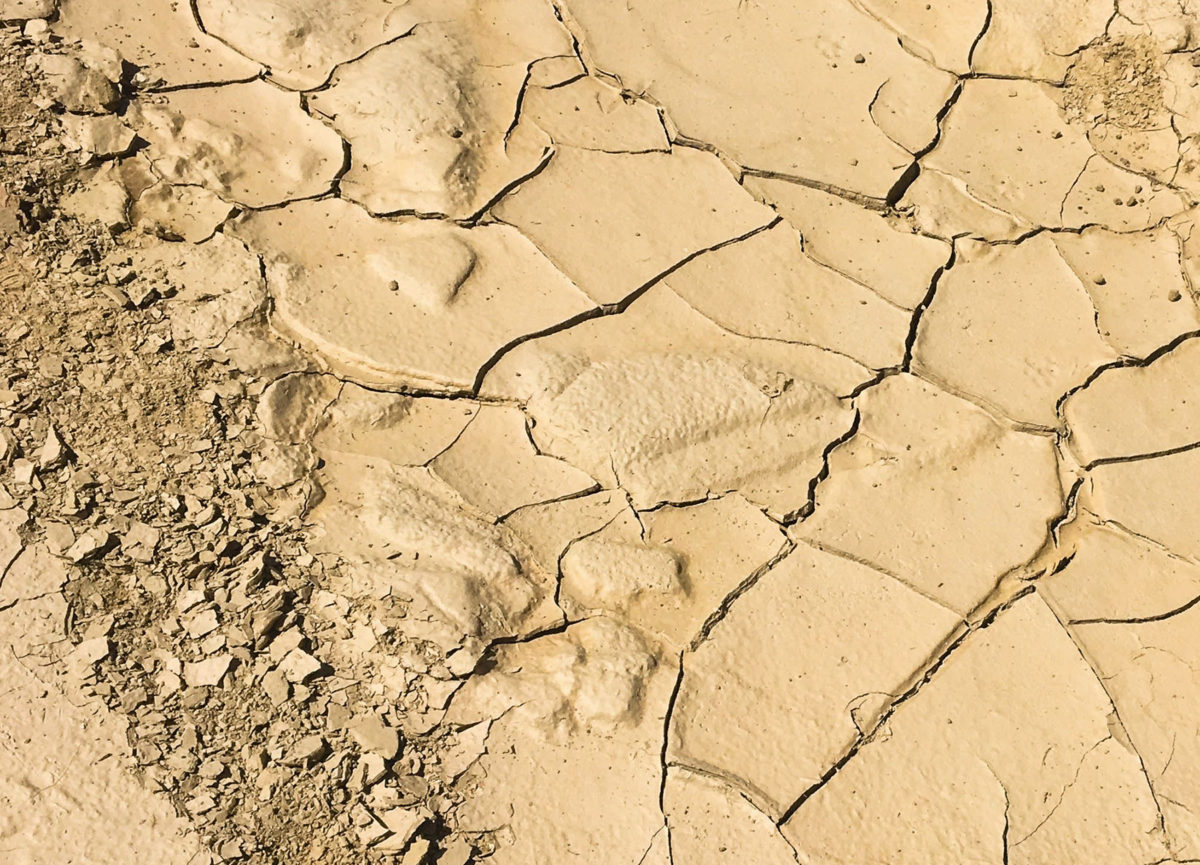
Is access to water a basic human right?
Bottled water is also part of a larger environmental and social justice issue that’s talked about more and more nowadays – who has the right to natural resources and is access to clean water, air, and environment a basic human right? I’d hope everyone ‘s answer is a resounding yes, but the reality is much grimmer.
The dark secret of bottled water is that it is taking away that right from many people across the world. Global companies, like Nestlé Waters (that owns dozens of brands including Poland Spring), are extracting natural resources from federal lands and sell them as a commodity, often leaving the original springs dry and locals without freshwater supply. Plus, they pay a ridiculously low price – in some states, permits cost them only a couple of hundred dollars. In Flint, Michigan, the place of the water crisis in 2014, residents paid more money for the undrinkable, tainted tap water than Nestlé did for the freshwater extraction permit.
This issue often affects small communities and indigenous people who live near the springs and wells, as well as regions already severely affected by droughts. A couple of years ago, Nestlé faced a quite serious backlash as it continued to siphon off water from a national forest in California, even when residents were ordered to cut back on water consumption.
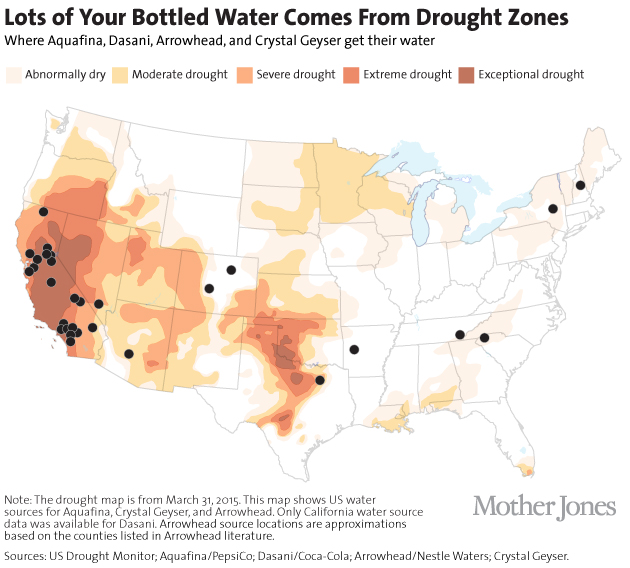
To add another insult to the already quite “impressive” list, Nestlé claims that bottled water is an essential public service and they have the right to basically privatize national resources.
Nestlé is not the only culprit, though. Fiji water, the trendy water brand that’s the no1 most imported water in the US is heavily criticized for exploiting the natural resources of Fiji. Pepsi, Coca-Cola and Danone, other leading bottled water producers were hit by protests in the US, the EU, and India in recent years for depleting groundwater resources. These companies also exploit already suffering communities by promising new job opportunities in exchange for massive tax breaks and unfair contracts. But once they’ve drained the resources, they move their operations elsewhere and leave an even more economically and environmentally depressed region behind them.
Time for a boycott
There are some cases when it’s OK to turn to bottled water. In some places, tap water is not drinkable. In other countries, tourists are advised to avoid tap water simply because they are not used to the chemicals and bacteria that it may contain.
But let’s be honest: for most of us living a comfortable middle-class life in Europe or the US that is not the case – for us, tap water is perfectly fine to drink (to be sure, check local water quality reports or install a water filter in your home). It’s the poor and minority communities that are disproportionately affected by the lack of access to safe drinking water. Flint’s water crisis was just one example when a community of predominantly Black and poor income people were exposed to lead and other contaminants in the drinking water. In Canada, many First Nations communities live under drinking water advisories, which means that they are advised to either boil water before consuming it or do not consume it at all as the water contains contaminants. For them, bottled water is a necessity and not a luxury.
We cannot think about the environment without thinking about these communities.
Conservationists, environmental activists, and local communities all across the world are taking up the fight to battle large conglomerates and often federal authorities for the right to fresh and safe water. When water scarcity is set to become one of the most serious global environmental, social, and security problems in the near future and when millions of people are stripped of their basic human right to fresh and clean water, the least we can do is boycott the abominable practices of the bottled water industry, raise awareness of the environmental injustices committed every single day against marginalized communities, and ensure that safe drinking water is not a luxury, but the bare minimum.

